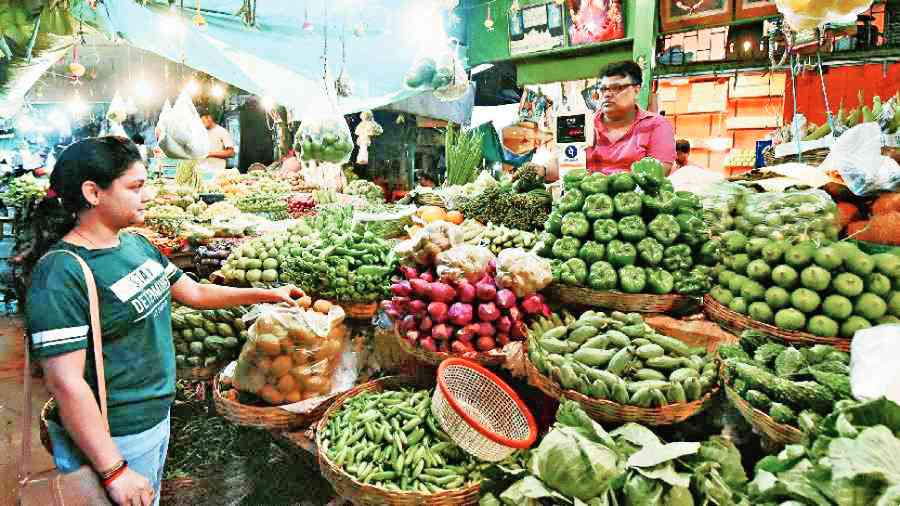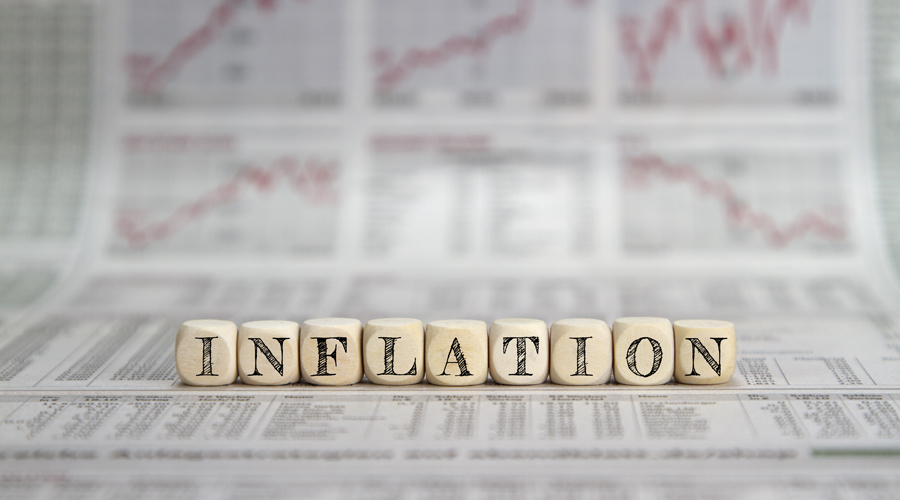Retail inflation softened to 6.71 per cent in July due to moderation in food prices but remained above the Reserve Bank's comfort level of 6 per cent for the seventh consecutive month.
With retail inflation continuing to remain high despite a fall in prices of vegetables and edible oils, among other commodities in July, the Reserve Bank of India (RBI) might go for another rate hike in September.
The Consumer Price Index (CPI) based retail inflation was at 7.01 per cent in June and 5.59 per cent in July 2021. It was above 7 per cent from April to June this fiscal.
According to the data released by the National Statistical Office (NSO) on Friday, food inflation in July moderated to 6.75 per cent as against 7.75 per cent in June.
The retail inflation is above RBI's upper tolerance level of 6 per cent and has remained at that level for the past seven months.
Meanwhile, the moderation in retail inflation in July was mainly due to easing of vegetable and edible oil prices. In the case of 'fuel and light', the prices remained high.
Fears of a global recession and fresh geopolitical uncertainties have led to a correction in commodity prices from the peaks seen in mid-June 2022, rating agency ICRA's Chief Economist Aditi Nayar said.
However, she said that robust domestic demand for services poses risks, given its significant share in CPI basket and hence, remains a key monitorable along with significant lag in kharif sowing of rice.
Services account for over 23.4 per cent of CPI basket.
"Given the Monetary Policy Committee's focus on anchoring inflation expectations and the RBI Governor's statement on inflation moving closer to the target of 4 per cent over the medium term, we expect another rate hike of about 10-35 bps (0.10-0.35 per cent) in the September 2022 policy meeting," she said.
RBI has hiked the benchmark repo rate thrice in a row and the rate is now at 5.4 per cent.
According to the data, inflation in vegetables and 'oil and fats' in July moderated to 10.90 per cent and 7.52 per cent respectively. In June, the same stood at 17.37 per cent and 9.36 per cent, respectively.
In July, fuel turned costlier with an inflation print at 11.76 per cent as against 10.39 per cent in the comparable period.
The prices of protein rich 'meat and fish' and 'pulses and products' rose 9 per cent and 0.18 per cent, respectively, in July this year.
However, eggs continued to show deflation at (-)3.84 per cent as against (-)5.48 per cent in June.
The prices of fruits were costlier by 6.41 per cent in July compared to 3.10 per cent in June.
"The dependency on global factors, including energy prices and geopolitical environment, is high and RBI is likely to continue increasing interest rates further over the next few months," Mohit Ralhan, Global CEO and Managing Partner at TIW Capital Group, said.












